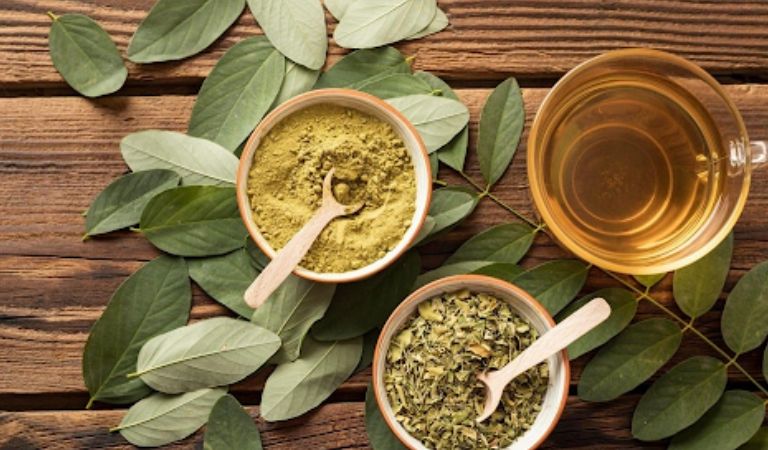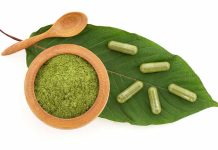Under appropriate dosing conditions, both DXM and Kratom have very minimal safety concerns. But some individuals are combining Kratom and DXM to increase the intensity of both drugs’ effects.
Dextromethorphan, sometimes known as a DXM, is a cough and cold medicine that may be purchased without a prescription. DXM originates from a morphine analog. The herb kratom, native to Southeast Asia, is slowly becoming available to markets in the United States. A substance in its leaves causes a psychoactive state of mind.
High doses of DXM and Kratom are risky and might have negative consequences. Therefore, this article will investigate the potential outcomes of combining Kratom with DXM.
What is DXM?
Over-the-counter remedies for the common cold and cough typically include dextromethorphan, abbreviated as DXM, as an active ingredient. As an antitussive drug, DXM is used to treat persistent coughing.
DXM may be obtained in many delivery systems, including pills, syrups, and aerosols. Its after-effects might last around for up to six hours. As long as it’s used correctly, it shouldn’t have any unwanted consequences.
DXM has the risk of abuse because of its hypnotic, psychotic, and stimulating effects. In addition, it has the potential to produce dissociative hallucinations if consumed in large enough quantities. Robot-based tourism is the term for this phenomenon.
Why Do We Need DXM?
Coughing may be uncomfortable and dangerous when you have the flu or another illness, but DXM can help.
Activating a cough requires a series of complicated events, including neurons in the body delivering a signal to the brain. DXM is effective because it inhibits the coughing response by interfering with these neural transmissions.
However, although it may alleviate your cough, it will not cure the underlying problem or speed up your healing.
DXM may be present in various medications, such as those used to treat allergies, pain, congestion, etc. Check with your local pharmacist if you need clarification on which DXM formulation is ideal for your needs.
Many DXM drugs, including antihistamines, have sleep-inducing side effects that make them inappropriate for daily usage.
How Much DXM Should I Take?
Dosing for DXM is very variable, as is the case with the vast majority of drugs.
The most important things to keep in mind are:
- Some DXM items designed for adults are not appropriate for use by minors.
- Drug administration, oral or intravenous
- Additionally, acetaminophen and aspirin are sometimes included in the formulation of DXM medicines.
- DXM may be either an immediate-release or a prolonged-release formulation.
How Much Kratom Should I Take?
• The recommended starting dose of kratom is 3 grams, taken first thing in the morning on an empty stomach. If you want the most effect from the least quantity of kratom, you should avoid taking it on a full stomach.
• After half an hour, you should check in with yourself to see how you’re doing. Add another gram of kratom powder if the first dose has no noticeable impact.
• For first-timers, 4 g kratom should be plenty. Powder might be difficult to work with at first, but after the proper dosage has been determined, it is the best way to take the drug.
How Does DXM Affect Your Body?
The negative effects of DXM are many. Nausea and sleepiness are the most often reported side effects. However, due to its dissociative properties, DXM is used recreationally by those who want to experience the sensation of being somewhere other than inside the physical body.
The more the drug is used, the more serious the adverse effects become.
Potential adverse reactions to DXM include:
- Lightheadedness
- Lethargy
- Headaches
- Nausea
- Anxiousness
- Irritability
- Irritations to the skin
- Discomfort in the belly
- Vomiting
Please get medical attention if any of these symptoms become severe or persistent.
Furthermore, taking 5-10 times the therapeutic dose of DXM for fun has been linked to severe side effects such as pulmonary collapse.
Research shows that DXM has a risk of addiction when taken in this form and that consumers experience withdrawal when they try to stop.
How Can You Define Kratom?
The herbal supplement Kratom is made from Mitragyna speciosa tree leaves and has been used for centuries for medicinal purposes. It’s a psychotropic substance that may have a number of different outcomes.
Traditional medicine practitioners in Southeast Asia have already been utilizing it for decades. Identical to the use of the South American coca leaf.
The numerous alkaloids found in plants are responsible for Kratom’s effects. These effects may be either stimulating or depressing, depending on whether they attach to receptors in the central nervous system.
Kratom may be purchased from various vendors and consumed in multiple forms, including infusions, tea, crushed powder tablets, and fresh leaves.
How Does Kratom Affect Your Body?
Like other pharmacologically active substances, Kratom may have undesirable consequences in certain people. Increased sensitivity to Kratom’s effects is proportional to increased use.
Adverse events associated with Kratom usage include:
- Feelings of apprehension
- Mental haze
- Loose stools
- Loss of coordination
- Headaches
- Symptoms of irregular heartbeat
- Tiredness
- Diarrhea and sickness
It also cannot be stressed enough that Kratom is addicting. In contrast, long-term abstinence from heavy use reduces the danger.
In What Ways Does Kratom Interact With DXM?
Since they share a metabolic route, Kratom and DXM will have additive and synergistic effects when consumed simultaneously.
Both Kratom and DXM have the same impact on the body. However, DXM does not interfere with Kratom’s euphoric effects, and Kratom does not alter DXM’s cough-suppressant qualities.
Nonetheless, there is reason to be concerned about how they are metabolized in the body. DXM is processed chiefly by CYP2D6 and CYP3A4, two cytochrome P450 enzymes. Interestingly, Kratom acts as a potent antagonist of these two enzymes.
In other words, ingesting Kratom may raise your body’s concentration of DXM and its derivatives.
Is It OK To Combine Kratom With DXM?
It has been shown that Kratom slows down the metabolic rate of DXM. Is there a problem here?
When coupled with Kratom, the chances of experiencing any negative side effects from DXM are low if the drug is used for a short amount of time and the recommended dose is followed.
You shouldn’t take DXM for very long. It also takes extraordinarily enormous dosages of DXM to have any noticeable adverse effects.
Only two exceptions exist:
- Remember that DXM is included in many drugs, so if you have a disease requiring regular DXM use, you should exercise caution while combining it with Kratom.
- Finally, research has shown that many people have impairments in the CYP2D6 enzyme, making it difficult for them to metabolize substances. Therefore, if you belong to this group, there is a little increase in danger while combining Kratom with DXM.
Conclusion
You’ll unlikely have any serious harmful effects from taking both chemicals in the recommended doses and with good judgment.
However, DXM should not be used with Kratom in larger doses since it may increase the drug’s effects. While it will serve its purpose here, you significantly increase the likelihood of undesirable outcomes.
In particular, you should be aware that Kratom inhibits the breakdown of DXM. However, considering that DXM is often only used when cold symptoms appear, this shouldn’t be a problem.
Consult your physician for advice on how to handle the co-consumption of these drugs if you see yourself consistently taking both. However, consuming high quantities of DXM for fun is not recommended.








